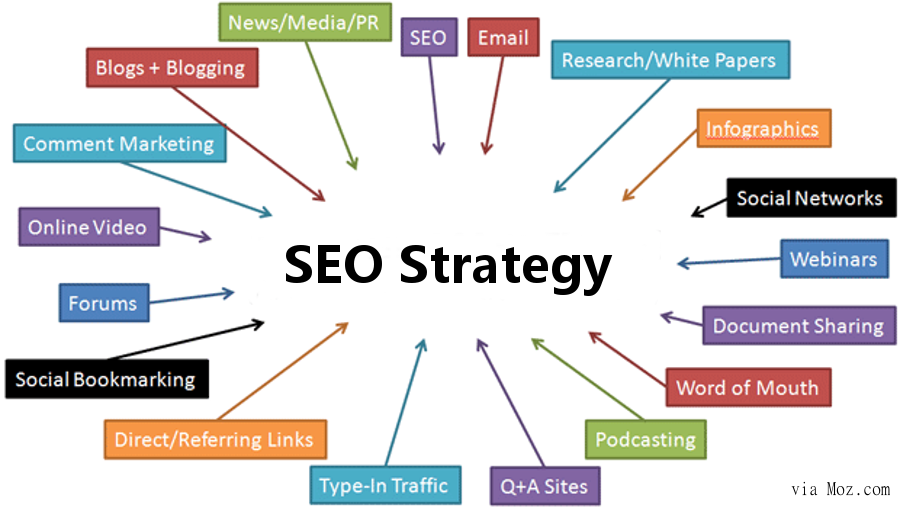The Best SEO Strategy
The ultimate strategy is to use real data to make intentional decisions that get you results.

You can adjust page speed and mobile optimization until the end of time, but Google always weighs the factors of your site’s organic keywords that are ranking, traffic, dwell time, and many more so on.
Point being: until you can get people coming to your site and engaging with it consistently, it won’t look good to humans OR Google’s bots. Check this basic strategy out, it’s what I’m doing and continue to do this year:
- The fastest results you’ll get from an existing website are looking at the “Easy Win” pages on your site that rank for a keyword and appear on page 2 or lower on page 1 of Google. If you can focus on doing SEO for pages that have the most potential AND are already ranking for a keyword that gets volume, you can get some traffic right away.
- Then you can look at your competitors for the same keyword ranking in the top 3 or top 5 results, or in the featured snippet, and try to discern what makes their site or page “better” looking to Google. Questions to ask: is it the # of backlinks? Is it the way the content is optimized compared to the competitors’ content? Is there content missing on the site that would give it more authority? Is it a ton of social shares?
- Make sure your site’s content is optimized, if you have a ton of sketchy pages or weird things going on with your site, that might hurt the goodness brought by the pages you made that are actually good.
Try this strategy out. Then, you can make informed decisions that bump you up vs. shots in the dark based off a best guess. There is always more to learn when it comes to SEO.
I recommend using Ahrefs to do all of this in one place. There are Two Main SEO strategies for WordPress Websites:
1. Page Speed & Relevancy- According to the “Speed Update” of Google, Pages that “deliver the slowest experience to users” will be impacted by this update, the company says. “Google’s latest research shows that the chance of a bounce increases 32% when the page load time goes from 1s to 3s. 1s to 5s increases the chance to 90% and if your site takes up to 10s to load, the chance of a bounce increases to 123%.”
What Can Lower Your Site Speed-
· Too Large Images- Images which are too heavy to load can really lower your page speed.
· External Embedded Media – External media like videos are highly valuable but can lower your site load time effectively.
· Too Many Ads- Lots of ads in your site can slow down your page speed.
· Website Theme- Highly designer theme with lot of effects and graphics can lower your site speed.
· Widgets- Widgets with large animation and graphics can too penalize your load time.
How to Improve Site Speed or Load Time-
· Use Page Speed Insights by Google to check your site speed & score.
· Combine Files to reduce the size of each file and also remove duplicate files from website.
· Reduce Server Response Time- If you’re using a slow DNS, this increases the time it takes for browsers to locate your site. Switching to a faster DNS provider can speed up the process.
· Reduce Image Sizes
· Host the videos on your own server.
2. Mobile Friendliness- Google is more likely to rank Mobile-Friendly sites higher in search results. Searches on Google from mobile are more than desktop in the past years. You can use Webmaster Tools to generate your mobile usability report and find out the issues when your site viewed on a mobile device. So it’s an important factor in trending as I know.
